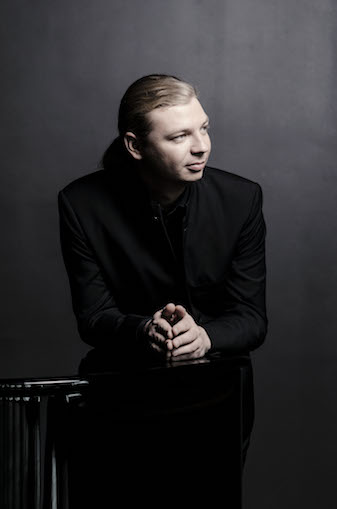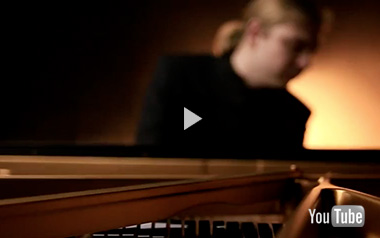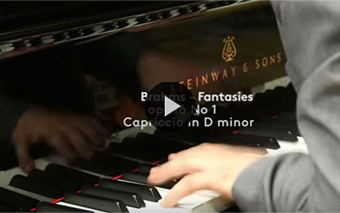Next Concerts
February 19, 2026
Odense
Odense C, Denmark
Ravel: Piano Concerto in G major, M.83
– Pierre Bleuse (conductor)
Venue: Odense Concert Hall, Odense
Mar 7, 2026
Netherlands Philharmonic / European Tour
Amsterdam, Netherlands
Brahms: Piano Concerto No.2 in B-flat major, Op.83
– Lorenzo Viotti (conductor)
Venue: The Concertgebouw, Amsterdam
Reviews
February 12th, 2014
Tonhalle Zürich / Brahms Prokofiev, Haydn, Liszt
“What a talented, intelligent young pianist this is: 27-year-old Denis Kozhukhin’s Zurich Tonhalle debut as part of the venue’s Série Jeunes had the audience jumping from their seats after the closing piece – Franz Liszt’s bravura “Mazzeppa” Etude. But the evening was not just about an explosion of sheer, superhuman virtuosity, far from it…
The pianist brought a sense of impetuous youthfulness to Brahms’s early work, driving the music forward with an energy that revelled in Brahms’s virtuosity as a pianist and composer and proved that dolce did not necessarily have to mean quiet. This is a Russian with a clear idea of what he wants to do, who gave us his own dramatic and emotional view of Brahms in his quest to present a unified picture of the music as a whole. And yet Kozhukhin still showed a certain sense of style in his interpretation, with a peerless logic to the way he brought out the sometimes intricate interweaving patterns of the parts and the formal structure of the work.
After allowing only a short time for applause, he moved on to Prokofiev. The ninth sonata is certainly no crowd-pleaser. It is more of a lyrical work, with a scherzo-like, at times trenchant quality, and this is precisely what makes it so difficult to bring off in a coherent way; the few Russians to play the ninth sonata would often take considerable licence with the tempi. Here Kozhukhin showed himself to be a talented and respectful performer with a genuine grasp of the essence of the music. His skill at interpreting the work and the touching microcosm he revealed within it were astonishing… Liszt’s “Benediction de Dieu dans la solitude”, the third number from the “Harmonies poétiques et religieuses” cycle, was the highlight of the evening, a fact attested by the absolute silence in the auditorium. The same was true of the five pieces from the twelve “Etudes d’exécution transcendante”. Kozhukhin is able to play virtuoso pieces like this with consummate ease, but he uses his virtuosity to reveal aspects of Liszt’s music we have never heard before. This was a performance entirely free of showmanship, but full of energy, expression and structure.”
Alfred Zimmerlin, NZZ, February 2013


